Best brokers
6 Best ETF Platforms in the UK
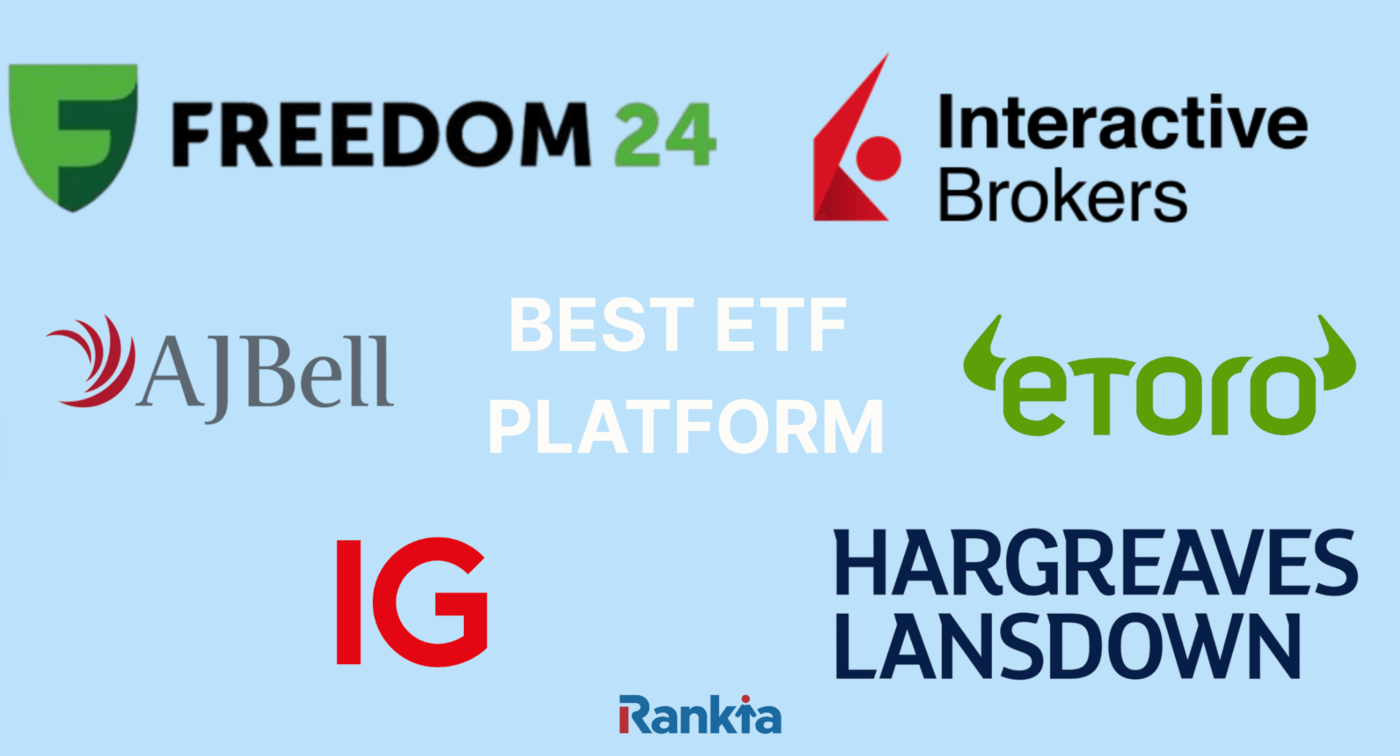
ETFs are increasingly becoming a core component of long-term investment portfolios for UK investors. Their low fees and wide range of options make it easy to gain exposure to almost any type of asset.
In this guide, we’ll look at the best brokers for buying ETFs in the UK, along with a comparison of each platform’s key strengths and weaknesses when it comes to ETF investing.
Best brokers to buy ETFs in 2025
These are the 6 best online brokers to invest in ETFs.
- Freedom24
- eToro
- Hargreaves Lansdown
- IG
- AJ Bell
- Interactive Brokers
Let's now have a look at each of the brokers in detail to determine which one best suits your investment style.
Freedom24
Freedom24 is a European broker regulated by CySEC (Cyprus authority), and also supervised by organisations such as BaFin (Germany) or SEC (USA). It is one of the few European brokers listed on Nasdaq, under the umbrella of its holding company Freedom Holding Corp (FRHC).

With Freedom24 you can invest in all the stocks of an index, such as the SP500, with a single transaction. It also includes ETFs from the world's leading managers, such as iShares, Vanguard, or BlackRock.
Although it does not have free ETFs, its fees are very acceptable.
Main Features
- Regulation: CySec
- Number of ETFs: +3,600
- Fees:
- All inclusive in EUR: 0.5% + 0.012€ per share (+1.2€/$ per order)
- Smart in EUR: 0.02€/$ per share + minimum of 2€/$
- Platform: Own and Mobile App
| Pros | Cons | ||
| ✅ Wide variety of ETFs | ❌ No offers of free ETFs | ||
| ✅ Access to free personal managers who will offer you investment ideas on a weekly basis | ❌ Somewhat complex fee structure | ||
| ✅ Includes real ETFs from the main international managers |
| Pros | Cons |
| ✅ Wide variety of ETFs | ❌ No offers of free ETFs |
| ✅ Access to free personal managers who will offer you investment ideas on a weekly basis | ❌ Somewhat complex fee structure |
| ✅ Includes real ETFs from the main international managers |
👉 For more information about this stock and ETF broker, check our Freedom24 review.
eToro
eToro is a globally recognised multi-asset trading platform that has become popular among both beginner and experienced investors thanks to its user-friendly interface and wide range of investment options. Regulated by top-tier authorities including the FCA (UK), CySEC (EU) and ASIC (Australia), eToro provides a secure environment for retail investors across the UK and Europe.
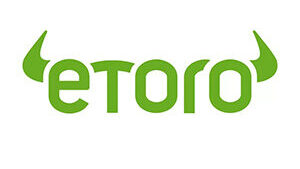
When it comes to ETFs, eToro offers access to over 300 commission-free ETFs, allowing users to invest in major indices such as the S&P 500, MSCI World, as well as sector-specific and thematic ETFs — all with zero trading fees. The platform includes ETFs from leading global providers such as iShares, Vanguard and SPDR.
In addition to traditional ETFs, eToro offers Smart Portfolios (formerly known as CopyPortfolios), which group together various assets, including ETFs, around specific themes or strategies — ideal for those looking for a more hands-off, diversified approach. While eToro doesn’t currently offer interest on uninvested cash, it does provide a unique social trading experience, where users can follow and copy the strategies of top-performing investors.
Main Features
- Regulation: FCA, CySec and ASIC
- Number of ETFs: +300
- Fees: 0€ | No commissions
- Platform: Proprietary web platform & mobile app
| Pros | Cons | ||
| ✅ Commission-Free ETF Trading: No fees for buying or selling ETFs, which makes it cost-effective for long-term investing. | ❌ Limited ETF Research Tools: While the platform is easy to use, it lacks in-depth analytical tools that more advanced traders might want. | ||
| ✅User-Friendly Interface: Simple, intuitive design ideal for beginners. | ❌ Withdrawal Fee: A $5 (approx. £4) fee is charged on each withdrawal. | ||
| ✅Smart Portfolios: Curated investment strategies that bundle ETFs and stocks around themes like tech, sustainability, or AI. | |||
| ✅ Fractional Investing: Buy small portions of shares or ETFs, starting from just $10 (~£8), ideal for those starting with lower capital. |
| Pros | Cons |
| ✅ Commission-Free ETF Trading: No fees for buying or selling ETFs, which makes it cost-effective for long-term investing. | ❌ Limited ETF Research Tools: While the platform is easy to use, it lacks in-depth analytical tools that more advanced traders might want. |
| ✅User-Friendly Interface: Simple, intuitive design ideal for beginners. | ❌ Withdrawal Fee: A $5 (approx. £4) fee is charged on each withdrawal. |
| ✅Smart Portfolios: Curated investment strategies that bundle ETFs and stocks around themes like tech, sustainability, or AI. | |
| ✅ Fractional Investing: Buy small portions of shares or ETFs, starting from just $10 (~£8), ideal for those starting with lower capital. |
👉 For more information about this broker read our eToro review.
Hargreaves Lansdown
Hargreaves Lansdown is one of the UK’s best Stocks and Shares ISA brokers, it is very established and trusted, and also offers a wide range of ETFs listed on the London Stock Exchange and other major markets. Investors can access hundreds of ETFs from leading providers such as iShares, Vanguard, Invesco, and L&G, covering everything from global indices like the FTSE 100 or S&P 500, to thematic, sectoral, and bond ETFs.
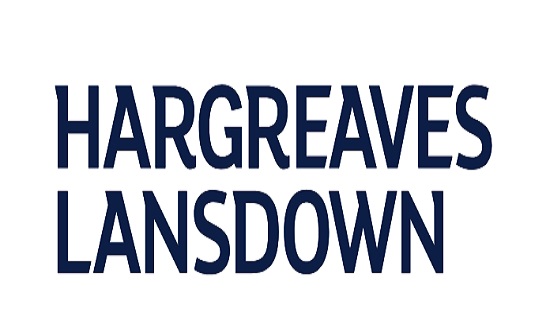
While Hargreaves Lansdown does not offer commission-free ETFs, it is known for its reliable platform, comprehensive research tools, and excellent customer service, making it especially appealing to long-term investors and those looking for a full-service broker.
ETF Fees at Hargreaves Lansdown:
- Share dealing fee: £11.95 per trade (reduces to £5.95 for frequent traders)
- No platform fee on ETFs held in a general account or SIPP
- 0.45% platform fee applies to ETFs in a Stocks & Shares ISA (capped at £45/year)
Although trading fees are higher than some low-cost platforms, many UK investors compare the platforms with other best options such as Hargreaves Lansdown and Vanguard and value the security, support, and research resources HL provides — especially when managing large or diversified portfolios.
Main Features
- Regulation: FCA
- Number of ETFs: +1,400
- Fees: Platform fees: 0.45% on funds; 0.45% on shares/ETFs (capped at £45/£200) Trading fees: £11.95 (0–9), £8.95 (10–19), £5.95 (20+) trades
- Platform: Web and Mobile app
| Pros | Cons | ||
| ✅ Wide range of ETFs available | ❌ High platform fees for ETFs (0.45% per year, capped only in Fund & Share Accounts) | ||
| ✅ Strong educational resources and research tools | ❌ No commission-free ETF trading | ||
| ✅ Established and reputable UK broker | ❌ No fractional share investing – must buy full ETF units | ||
| ✅ Offers tax-efficient wrappers (ISA, SIPP, Junior ISA) |
| Pros | Cons |
| ✅ Wide range of ETFs available | ❌ High platform fees for ETFs (0.45% per year, capped only in Fund & Share Accounts) |
| ✅ Strong educational resources and research tools | ❌ No commission-free ETF trading |
| ✅ Established and reputable UK broker | ❌ No fractional share investing – must buy full ETF units |
| ✅ Offers tax-efficient wrappers (ISA, SIPP, Junior ISA) |
👉 To learn more about this broker, read our Hargreaves Lansdown review.
IG
You can’t overlook IG, one of the UK’s most established and trusted trading platforms. In addition to a wide range of financial instruments—including shares, indices, forex, commodities, and derivatives—IG also offers access to a large selection of ETFs, including over 2,400 UCITS ETFs.
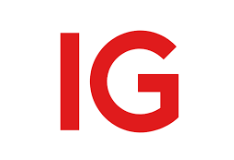
Through its user-friendly platform, you can explore detailed ETF data such as portfolio breakdowns, holdings, performance metrics, and more—making it easy to invest in both actively managed and passive ETFs, including a strong selection of Smart Beta strategies.
Main Features
- Regulation: FCA
- Number of ETFs: More than 2,000 UK-eligible ETFs via share dealing and ISA accounts
- Fees: National rate: Less than 6,000 euros: 4€ Between 6,000€ and 50,000€: 9€ More than 50,000€: 0.1% International rate: Less than 30,000 EUR / USD / GBP: 15 EUR / USD / GBP per transaction More than 30,000 EUR / USD / GBP: 0.15% of the transaction.
- Platform: Own, Mobile App, MetaTrader 4, ProRealTime and IG Smart Portfolio
| Pros | Cons | ||
| ✅ FCA-regulated and backed by FSCS protection up to £85,000 | ❌ Trading fees can be relatively high, especially for smaller portfolios | ||
| ✅ Extensive ETF offering, including UCITS-compliant ETFs across sectors, markets, and strategies | |||
| ✅ Access to Smart Beta ETFs, which aim to reduce volatility and improve long-term returns through alternative weighting strategies | |||
| ✅ Robust research tools and platform support, including phone and online help during UK trading hours |
| Pros | Cons |
| ✅ FCA-regulated and backed by FSCS protection up to £85,000 | ❌ Trading fees can be relatively high, especially for smaller portfolios |
| ✅ Extensive ETF offering, including UCITS-compliant ETFs across sectors, markets, and strategies | |
| ✅ Access to Smart Beta ETFs, which aim to reduce volatility and improve long-term returns through alternative weighting strategies | |
| ✅ Robust research tools and platform support, including phone and online help during UK trading hours |
One standout feature is IG’s Smart Beta ETF offering—these passively managed funds aim to track an index while reducing risk by focusing on high-quality, stable, or undervalued companies, and using more balanced weighting methods. This gives investors a more strategic, fundamentals-based alternative to traditional index tracking.
👉 For more information, read our IG review.
AJ Bell
AJ Bell, one of the UK’s most trusted investment platforms, stands out for its solid selection of UCITS ETFs and its straightforward, easy-to-use platform. Investors can access hundreds of ETFs covering indices, sectors, commodities, and global markets, all within a tax-efficient wrapper such as an ISA or SIPP.

While fractional investing isn’t currently supported, AJ Bell makes it simple to get started with low minimum investment amounts—as little as £1 per trade via their regular investing service. This feature is ideal for long-term savers who want to build positions gradually.
In terms of fees, AJ Bell charges £1.50 per ETF trade using the regular investment service, or £9.95 per standard online trade, in addition to each ETF’s ongoing fund charges (TERs). Investors can also set up automated investment plans, regularly contributing to selected ETFs and shares with customisable amounts and schedules.
Main Features
- Regulation: FCA
- Number of ETFs: +3,500
- Fees: AJ Bell charges a 0.25% annual platform fee (capped at £42/year), £5 per ETF trade (£1.50 via regular investing), and no dealing fees on its Dodl app (but a 0.15% annual charge applies).
- Platform: Web and Mobile app
| Pros | Cons | ||
| ✅ Access to over 3,500 ETFs, including UCITS-compliant products across global markets. | ❌ You must buy full ETF units; limits access for investors with small amounts. | ||
| ✅ ETF trades are just £1.50 via the regular investing service, ideal for monthly investing. | ❌ ETF trades outside of regular investing cost £5 each, or £9.95 if not a frequent trader. | ||
| ✅ Supports ISAs, SIPPs, and general investment accounts for flexible, tax-advantaged investing. |
| Pros | Cons |
| ✅ Access to over 3,500 ETFs, including UCITS-compliant products across global markets. | ❌ You must buy full ETF units; limits access for investors with small amounts. |
| ✅ ETF trades are just £1.50 via the regular investing service, ideal for monthly investing. | ❌ ETF trades outside of regular investing cost £5 each, or £9.95 if not a frequent trader. |
| ✅ Supports ISAs, SIPPs, and general investment accounts for flexible, tax-advantaged investing. |
Interactive Brokers
Interactive Brokers is known for its advanced market analysis tools; it offers up to 15,000 ETFs, of which 150 are commission-free, in its IBKR Pro account. Most of them are not ETFs that can be acquired from Europe (UCITS).
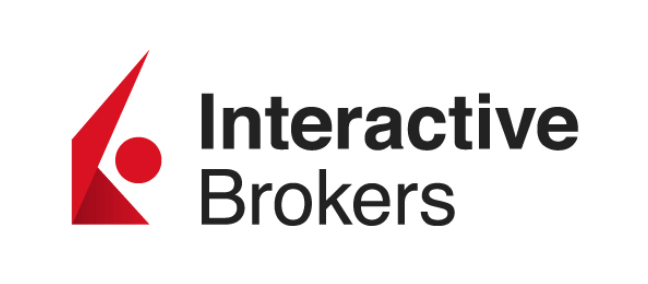
However, it has a complex commission system that varies by markets and investment tiers. In this way, we can find ETFs at 0 USD in the US, while in Spain a commission of 0.1% of the transaction value is applied, with a minimum of 4 EUR.
Main Features
- Regulation: FCA, SEC
- Number of ETFs: +15,000
- Fees: From 0 USD for US ETFs
- Platform: Own (Trader WorkStation), Global Trader, and Mobile App.
| Pros | Cons | ||
| ✅ Very well regulated | ❌ Most of its free ETFs are for American accounts in USD. | ||
| ✅ Wide range of ETFs, even free ones. | ❌ Complex commission system by markets and segments. | ||
| ✅ Competitive broker for advanced investors. | |||
| ✅ Allows trading in ETFs with leverage. |
| Pros | Cons |
| ✅ Very well regulated | ❌ Most of its free ETFs are for American accounts in USD. |
| ✅ Wide range of ETFs, even free ones. | ❌ Complex commission system by markets and segments. |
| ✅ Competitive broker for advanced investors. | |
| ✅ Allows trading in ETFs with leverage. |
Key features of the best ETF brokers
To be successful in ETF investing, it is essential to have a trusted broker that offers a wide range of options, an easy-to-use investment platform, and above all, is safe.
Below are the minimum requirements you should demand from your broker if you are going to invest in ETFs
| Requirements of a good ETF broker | Definition | ||
| 🔒 Security | The security of investors' funds must be an absolute priority for any broker. Therefore, always look for ETF brokers that are regulated by some of these supervisory bodies: CNMV, AFN, BaFiN, ICB, KNF (Western European countries), SEC (USA), FCA (England) or ASIC (Australia) | ||
| 💼 Wide range of ETFs | One of the main benefits of ETFs is their diversification, also sought by investors. Therefore, it is important to have a wide range of ETF options available, including: Options in different regions. Sectors Asset classes. The more ETFs, the better. In fact, the minimum that should be required is 300. | ||
| 📈 Intuitive investment platform | As always, it should be adapted to your investor profile: If you are a beginner, look for a platform that is easy and intuitive, allowing you to invest with just 3 or 4 clicks. If you are an expert, allow yourself to use platforms with advanced charting tools. | ||
| 💲 Relatively low commissions (or even free) | The commissions for buying ETFs should never exceed 0.5% of the transaction. However, it is already quite common for all online brokers to offer a section of 100 or 200 ETFs of passive management (indexed) and high capitalisation completely free. | ||
| ℹ️ With access to ETF fact sheets | The best ETF broker should provide investors with access to all the relevant information about ETFs. This may include: Information about historical performance Benchmark indices Companies that make up the ETF Purchase and maintenance costs (if any) Or any other relevant information that investors need to make informed decisions. |
| Requirements of a good ETF broker | Definition |
| 🔒 Security | The security of investors' funds must be an absolute priority for any broker. Therefore, always look for ETF brokers that are regulated by some of these supervisory bodies: CNMV, AFN, BaFiN, ICB, KNF (Western European countries), SEC (USA), FCA (England) or ASIC (Australia) |
| 💼 Wide range of ETFs | One of the main benefits of ETFs is their diversification, also sought by investors. Therefore, it is important to have a wide range of ETF options available, including: Options in different regions. Sectors Asset classes. The more ETFs, the better. In fact, the minimum that should be required is 300. |
| 📈 Intuitive investment platform | As always, it should be adapted to your investor profile: If you are a beginner, look for a platform that is easy and intuitive, allowing you to invest with just 3 or 4 clicks. If you are an expert, allow yourself to use platforms with advanced charting tools. |
| 💲 Relatively low commissions (or even free) | The commissions for buying ETFs should never exceed 0.5% of the transaction. However, it is already quite common for all online brokers to offer a section of 100 or 200 ETFs of passive management (indexed) and high capitalisation completely free. |
| ℹ️ With access to ETF fact sheets | The best ETF broker should provide investors with access to all the relevant information about ETFs. This may include: Information about historical performance Benchmark indices Companies that make up the ETF Purchase and maintenance costs (if any) Or any other relevant information that investors need to make informed decisions. |
Summary of the best ETF platforms
In summary, to ensure we choose the best broker for ETFs, we must select a secure broker that offers a wide range of ETF options, has an intuitive investment platform, with relatively low commissions, and provides investors access to the fundamental information of the ETF.
FAQs
What is an ETF?
An ETF (Exchange-Traded Fund) is an investment fund that trades on the stock exchange in the same way as individual shares. This means you can buy and sell ETF units in real time during market hours, just as you would with company shares. ETFs are popular because they bundle together a range of assets—such as shares, bonds, or commodities—into a single investment, making it easy to diversify your portfolio.
For example, an S&P 500 ETF includes all the companies in that index, so by purchasing just one unit, you’re gaining exposure to the 500 largest publicly listed companies in the US. ETFs are widely regarded for their low costs, transparency, and relatively lower risk compared to investing in individual stocks.
In the UK, ETFs are treated similarly to shares for tax purposes. You may be liable for Capital Gains Tax (CGT) when you sell for a profit, unless you hold them in a Stocks and Shares ISA or SIPP, where gains are tax-free.
What fees can we find when trading ETFs?
When trading ETFs, the following fees may apply:
- Trading commission: Charged per buy/sell transaction. Some brokers offer free ETF trading, but others include additional market and clearing fees.
- Management fee (TER): Built into the ETF’s price, this ongoing charge typically ranges from 0.1% to 0.9% annually.
- Dividend handling fee: Some brokers may charge a fee when you receive dividends from distributing ETFs.
- Account maintenance fee: May apply if your account is inactive over time.
- Spread cost: Not a fee, but illiquid ETFs may have a wide bid-ask spread, affecting execution prices during volatile markets.
Why choose an ETF trading platform?
An ETF trading platform lets you easily buy and sell ETFs, access a wide variety of funds, and manage your investments with tools and insights—all in one place.
What are some of the advantages of investing in ETFs?
Diversification: ETFs hold many assets, spreading risk.
Low costs: Generally cheaper than mutual funds.
Liquidity: ETFs trade like stocks throughout the day.
Flexibility: Access to various markets, sectors, and strategies.
Transparency: Holdings are usually disclosed daily.
What are some of the disadvantages of investing in ETFs?
Trading fees: Costs per transaction can add up, especially with frequent trading.
Bid-ask spread: Illiquid ETFs may have wider spreads, increasing costs.
Management fees: Ongoing expense ratios, though typically low, still affect returns.
Market risk: ETFs fluctuate with the market and can lose value.
Complexity: Some specialised ETFs (like leveraged or inverse) carry higher risks.
Disclaimer: